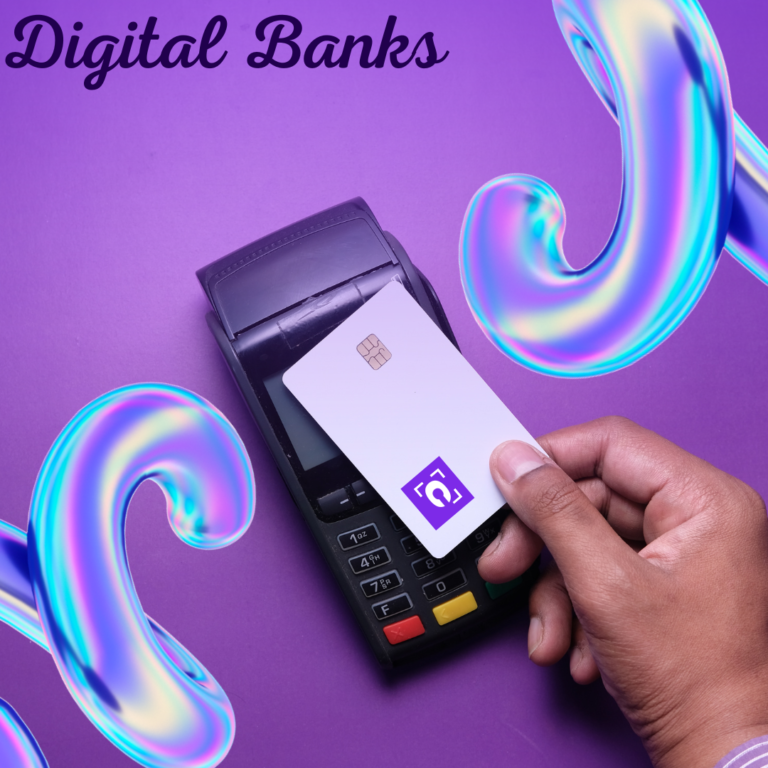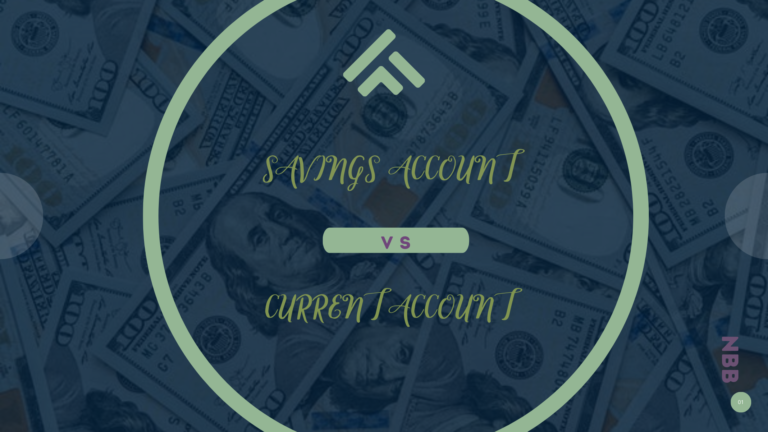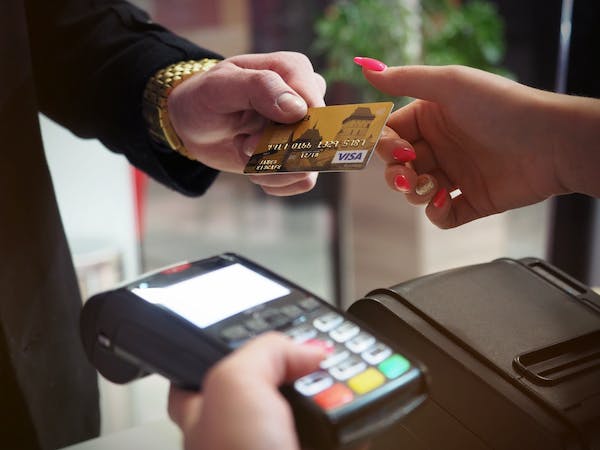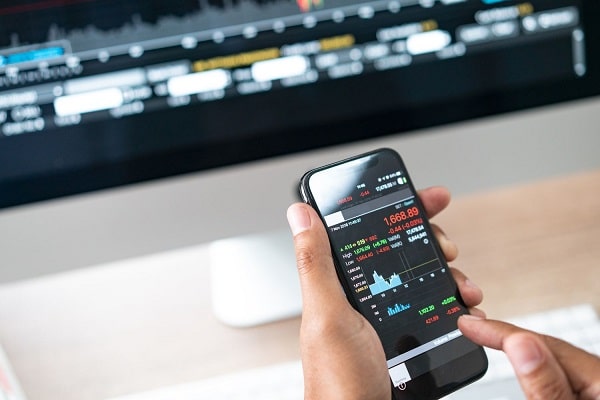Difference between mobile banking and internet banking
Internet banking, often known as “online banking,” is one of the most convenient forms of e-banking.
Internet banking led to a shift in banking procedures and continues to offer virtual banking services to customers.
With the assistance of the bank’s website, customers can utilize this method to gain access to their banking accounts from any location in the world.

However, internet banking is not the same as mobile banking which refers to a facility that is wireless and internet-based that is provided by banks to their customers so that they can operate their bank accounts through handheld devices such as smartphones, tablets, and other similar devices with the assistance of a website or a mobile application.
Due to the fact that the services offered by mobile banking and internet banking are very comparable to one another, there are times when individuals incorrectly believe that the two facilities are one and the same.
If you are among those individuals who find it difficult to differentiate between mobile banking and internet banking, worry no more because we have got you covered.
If you can stick around a little bit longer, you will become familiar with all of the key distinctions that exist between mobile banking and Internet banking.
Now before we dive into the difference between mobile banking and internet banking, let’s get to know the meaning of Mobile banking and internet banking.
What is mobile banking?
The term “mobile banking” refers to a service that financial institutions offer to their customers so that they can access their bank accounts and carry out monetary transactions from a remote location using mobile devices such as tablets, smartphones, or cellular devices.
Mobile banking is a facility that is provided by financial institutions to their customers. The transaction could take place via a short message service (SMS), the mobile web, or an application.
This service is available to customers at their convenience around the clock and in any location.
Mobile banking enables users to carry out a variety of financial transactions, such as paying bills online, transferring funds, monitoring account balances, viewing a list of the most recent transactions, topping up mobile or cable television accounts, and other similar activities.
In addition, mobile banking provides an increased level of protection by sending warnings or notifications on the activity of the account to the cellphone number that has been registered. That being clarified, let’s take a look at internet banking.
Also read: Best bank in Nigeria for students
What is Internet Banking?
The term “internet banking” refers to a type of banking in which monetary transactions are carried out with the assistance of the internet.
It is revolutionary in the age of the conventional banking system because it eliminates the need for customers to physically visit a bank branch to complete a transaction.
Simply put, internet banking is an electronic payment system that enables the holder of a bank account to carry out monetary transactions through the use of the bank’s website at any time and from any location.
These transactions include paying bills, transferring funds, making payments, and inquiring about balances, among other things. The bank’s online banking platform is fully integrated into the bank’s main banking system.
This service is available to any customer of the bank who registers with the concerned bank for the service and establishes a password and any other credential required for account holder verification.
After that, the bank will provide the customer with a personal identification number (PIN), also known as a customer number, that is connected to the bank account that they currently have.
As you can see above, mobile banking and online banking are both examples of digital forms of banking that are designed to provide convenience and safety for customers.
Although clients who choose either of these two alternatives are required to have current bank accounts and to register by coming up with a username and a safe password for themselves, they are not interchangeable and should not be used interchangeably.
It’s obvious the next question on your lips is “What is the difference between internet banking and mobile banking”? Keep reading because the difference will be discussed in the next section.
Also read: Top 10 best digital banks in Nigeria 2023
Difference between Mobile Banking and Internet Banking
The functionality of online and mobile banking
The first difference between online banking and mobile banking is in their usage.
With an internet connection and a personal computer, you can use Internet banking to handle financial activities online. However, you can use your mobile banking whether or not you have access to the internet.
In order to facilitate mobile banking, many banks today have developed dedicated apps. Although such mobile banking apps require an active data plan, several banks also provide mobile banking services by text message.
So, even if you don’t have a smartphone, you can still use some functions of mobile banking via text message.
Financial services for business transactions
The next difference between mobile banking and online banking is in their ability to perform financial transactions.
More features are usually available through the bank’s online portal, where Internet Banking is performed.
You can do just about everything with internet banking these days, from checking your account balance and statement to moving money, ordering new checks, or even opening a new fixed deposit account.
However, mobile banking has fewer options than online banking, especially if you don’t use your bank’s mobile app.
Many services formerly only available at physical branches are now available through banking apps.
Possibility of using a mobile banking app and a web-based banking service
With online banking, you can complete your transaction without installing any additional software on your computer or laptop. Also, to access your bank’s Internet banking page, you can use any browser.
But a mobile app is required to use the majority of mobile banking’s functions. To take advantage of this feature, you will need to install either the Android or iOS version of your bank’s app.
Creating a bank and mobile bank account online
If you are familiar with the concept of Internet banking, you may already have a login and password to access your bank’s online banking page.
However, you cannot use your online banking credentials to enter your bank’s mobile app.
This is because mobile banking is a standalone service that requires its own application. Once you’ve done so, your bank will issue you a password.
You can usually sign up for mobile banking services through your bank’s website.
Push notifications
Another difference between mobile banking and internet banking is the presence or absence of push notifications.
You can receive push alerts from the mobile banking app, just as with any other app on your phone.
A lot of these alerts provide incredible sales and savings for their subscribers. This means that you can receive these discounts without ever logging into the app.
However, Internet banking does not support this functionality. To view current promotions or sign up for the bank’s email list, you will need to log into your online banking account.
Safety tips for mobile banking and internet banking
You know, the rate of cyber attacks in the financial industry is increasing as day breaks.
Also, any financial transaction that is completed online entails some level of danger so it’s advisable to keep your online banking and mobile banking safe. How do you accomplish this? You may ask.
Well, it will be discussed in detail in the next section. Now, here are straightforward ways to keep your mobile banking and internet banking safe.
Safety tips for Mobile Banking
- Be careful to download the app that has been validated and is provided by your financial institution.
- Activate two-factor or multi-factor authentication if at all possible.
- Use passwords that are at least eight characters long.
- Stay away from Wi-Fi networks that are accessible to the public.
- Check that the operating system on your mobile device has been upgraded to the most recent version.
- If you have any reason to suspect that fraudulent activity has taken place, you should sign up for either push notifications or text message alerts.
Safety tips for Online Banking
- Check to see that all of the devices you’re using have the most recent software updates.
- Register for banking alerts that will inform you of any unusual behavior through email or text messages. You can do this by signing up for these notifications.
- When utilizing a public computer, you should avoid logging in to your online banking account.
- Make sure to use robust passwords by coming up with a combination of letters, numbers, and special characters. Alternate them on a consistent basis.
Conclusion
Now that you have known the difference between mobile banking and internet banking, feel free to find out what your bank has to offer in terms of Internet and mobile banking, and start using these cutting-edge digital services right away to discover a whole new world of banking.
FAQ
Is Internet banking and mobile banking the same?
No, mobile banking and internet banking are not the same.
What is mobile banking?
Mobile banking refers to a service that financial institutions offer to their customers so that they can access their bank accounts and carry out monetary transactions from a remote location using mobile devices such as tablets, smartphones, or cellular devices.
What is internet banking?
Internet banking refers to a type of banking in which monetary transactions are carried out with the assistance of the internet.





